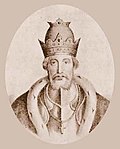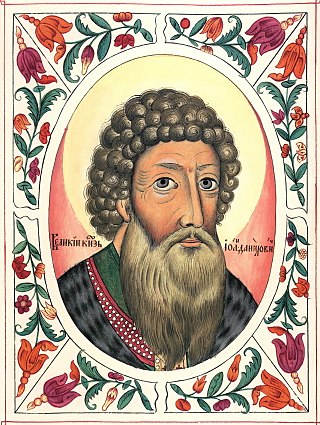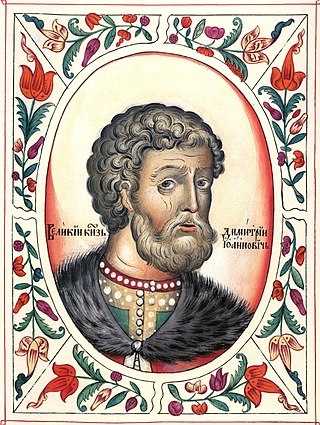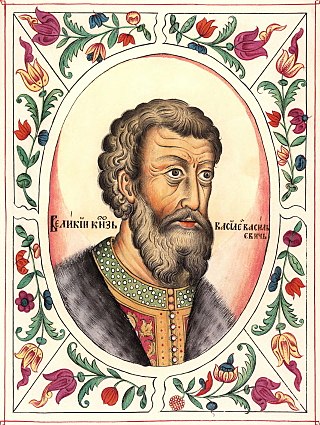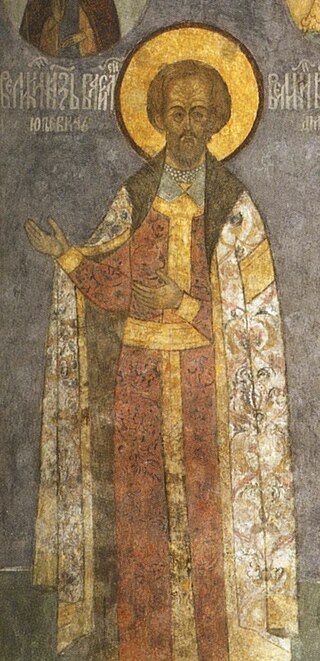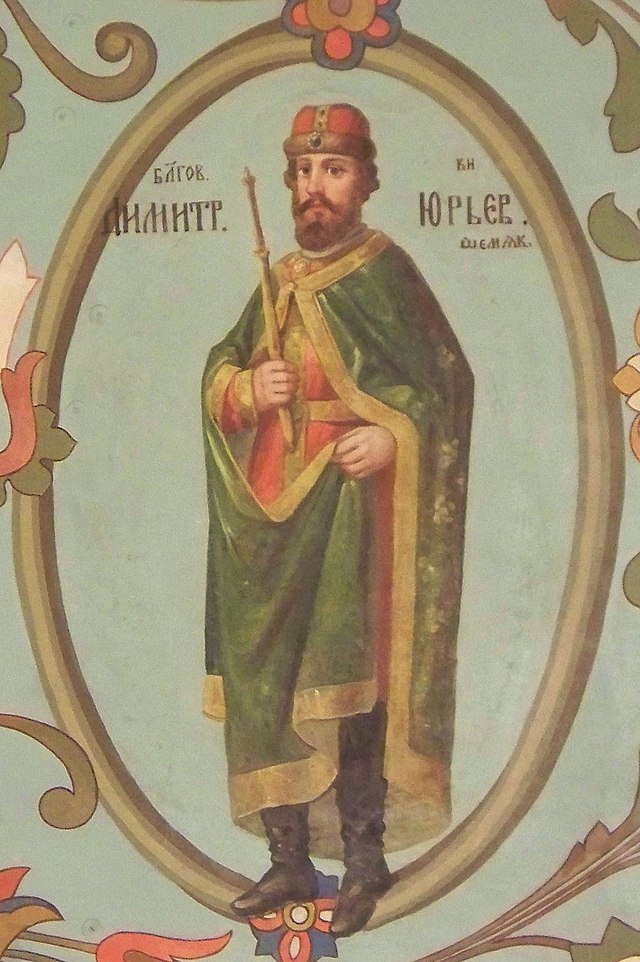Top Qs
Timeline
Chat
Perspective
Grand Prince of Moscow
Monarch during a period of Russian history From Wikipedia, the free encyclopedia
Remove ads
The Grand Prince of Moscow (Russian: великий князь Московский, romanized: velikiy knyaz Moskovskiy), known as the Prince of Moscow[a] until 1389, was the ruler of the Grand Principality of Moscow. The Moscow principality was initially established in the 13th century as an appanage within the Vladimir-Suzdal grand principality. By the late 14th century, the grand principality became a family possession of the princes of Moscow;[1] the monarch bore the title of grand prince of Vladimir and Moscow and later the title of grand prince of Vladimir, Moscow and all Russia.[2][3]
Remove ads
History
Summarize
Perspective
The grand principality of Vladimir-Suzdal fell apart into feuding appanages over the course of the 13th century. The princes of Moscow were descendants of Daniel.[4] As Daniel never became grand prince of Vladimir before he died in 1303,[5] this meant that according to traditional succession practices, his descendants were izgoi: his son and successor Yury of Moscow had no legitimate claim to the throne of Vladimir.[5] This is why Tokhta Khan granted Mikhail of Tver the grand princely title when Andrey of Gorodets died the next year (27 July 1304).[5] Nevertheless, the princes of Moscow managed to play towards the favour of the Mongol khans of the Golden Horde in order to be awarded the grand princely title through a yarlik by the second quarter of the 14th century, in disregard of dynastic traditions.[6] The Horde sought to use Moscow to weaken the Principality of Tver (the strongest principality),[7] but by the second half of the 14th century, when the Horde got embroiled in a decades-long war of succession known as the Great Troubles, the Muscovite princes managed to grow too powerful, and the khans were too late to start awarding the yarlik of grand prince of Vladimir to the princes of Tver instead in order to keep Moscow in check.[8] Dmitry Donskoy passed the grand principality to his son Vasily I in his 1389 will,[9] thus usurping the right of the khan to choose the grand prince.[10]
Remove ads
List
- Princes of Moscow
- Grand princes of Moscow
Remove ads
See also
Notes
References
Bibliography
Wikiwand - on
Seamless Wikipedia browsing. On steroids.
Remove ads

